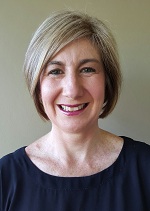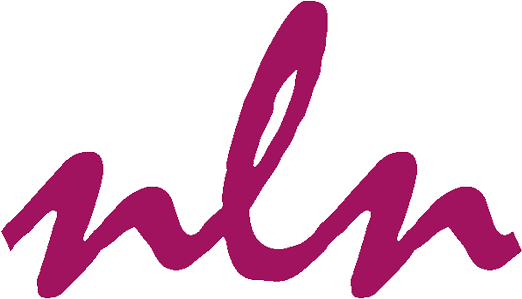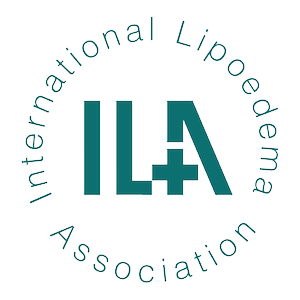Louise Koelmeyer
BAppSc (OT)
ALA Accredited Practitioner
The Role of Indocyanine Green Lymphography (ICG) in Guiding Manual Lymphatic Drainage – The ALERT Approach
Saturday, May 4, 3:00pm – 4:00pm
This presentation will explain how indocyanine green lymphography (ICG) can be utilized to better understand both normal and pathological lymphatic anatomy and how ICG can be applied in clinical practice to map individual lymphatic drainage pathways and guide manual lymphatic drainage (MLD). The ALERT program, based at Macquarie University in Sydney, Australia, uses a specialist multidisciplinary team approach to personalise the management of lymphedema using ICG. Early research results will be discussed.
- Explain how indocyanine green lymphography (ICG) is used to define lymphatic anatomy and lymphatic territory descriptors (lymphosomes).
- Describe the theory and practical application of ICG imaging for personalising manual lymphatic drainage techniques to achieve positive outcomes for those living with lymphedema.
Suami H, Louise Koelmeyer et al (2018) Patterns of lymphatic drainage after axillary node dissection impact arm lymphoedema severity: A review of animal and clinical imaging studies. Surgical Oncology. 27 (4): 743-750
Suami H, Scaglioni MF. (2018) Anatomy of the Lymphatic System and the Lymphosome Concept with Reference to Lymphedema. Semin Plast Surg. 32(1):5-11
Suami, H (2017) Lymphosome Concept: Anatomical Study of the Lymphatic System. J. Surg. Oncol. 115(1):13-17
Suami, H., et al (2012) Using indocyanine green fluorescent lymphography to demonstrate lymphatic architecture. Journal of Lymphoedema 7(2):25-29
Mihara, M., et al (2012) Pathological Steps of Cancer-Related Lymphedema. PLoS One. 7(7) pp E41126
Suami H, Pan WR, Taylor GI. (2007) Changes in the Lymph Structure of the Upper Limb After Axillary Dissection: Radiographic and Anatomical Study in a Human Cadaver. Plast Reconstr Surg 120(4):982-91
 Louise Koelmeyer
Louise Koelmeyer graduated with a Bachelor of Applied Science in Occupational Therapy from the University of Sydney, Australia in 1990. She has over 28 years of clinical experience in both public and private hospital and clinic settings specializing in breast cancer rehabilitation and lymphoedema management in all areas of assessment, education, early detection, and treatment. Louise completed basic and advanced Casley-Smith lymphoedema training and works as an accredited Lymphoedema Practitioner and is listed on the Australasian Lymphology Association’s (ALA) National Lymphoedema Practitioner Register.
As Lymphoedema Program Manager & Senior Lecturer in the Australian Lymphoedema Education, Research and Treatment (ALERT) program at Macquarie University, Louise is involved in strategically managing and developing the education, research, and treatment arms of the innovative multidisciplinary program.
Louise is a member of the ALERT teaching faculty offering ALA-accredited lymphoedema training programs for health professionals. Louise develops and presents education workshops and advanced, skill-based modules on all aspects of assessment and management of lymphoedema, locally, nationally and internationally. Her particular area of interest is on the early-prospective surveillance model of care in early detection and management of lymphoedema and innovative advances in management.
Louise’s research interests are in achieving better outcomes in innovative early and advanced lymphoedema management through conservative and surgical treatment. Louise is one of the Australian Principal Investigators on the 5-year “PREVENT” Vanderbilt University Randomised Control Trial investigating the early detection and management of breast cancer-related lymphoedema. Macquarie University has contributed the highest number of study participants (450) to the total cohort of 1,200 women on this study.
Louise is enrolled at Macquarie University completing PhD studies exploring home monitoring for lymphoedema using bioimpedance spectroscopy.
Louise’s clinical interests and expertise are in developing a therapeutic relationship with individuals and personalising treatment programs that support the individual’s needs and goals to achieve positive outcomes. At the ALERT multidisciplinary clinic, Louise is involved in the pre- and post-operative rehabilitation of patients following liposuction surgery whereby around 40% of patients attending the clinic are living outside of New South Wales, Australia and in New Zealand.
 Louise Koelmeyer
Louise Koelmeyer
 Louise Koelmeyer graduated with a Bachelor of Applied Science in Occupational Therapy from the University of Sydney, Australia in 1990. She has over 28 years of clinical experience in both public and private hospital and clinic settings specializing in breast cancer rehabilitation and lymphoedema management in all areas of assessment, education, early detection, and treatment. Louise completed basic and advanced Casley-Smith lymphoedema training and works as an accredited Lymphoedema Practitioner and is listed on the Australasian Lymphology Association’s (ALA) National Lymphoedema Practitioner Register.
Louise Koelmeyer graduated with a Bachelor of Applied Science in Occupational Therapy from the University of Sydney, Australia in 1990. She has over 28 years of clinical experience in both public and private hospital and clinic settings specializing in breast cancer rehabilitation and lymphoedema management in all areas of assessment, education, early detection, and treatment. Louise completed basic and advanced Casley-Smith lymphoedema training and works as an accredited Lymphoedema Practitioner and is listed on the Australasian Lymphology Association’s (ALA) National Lymphoedema Practitioner Register.




